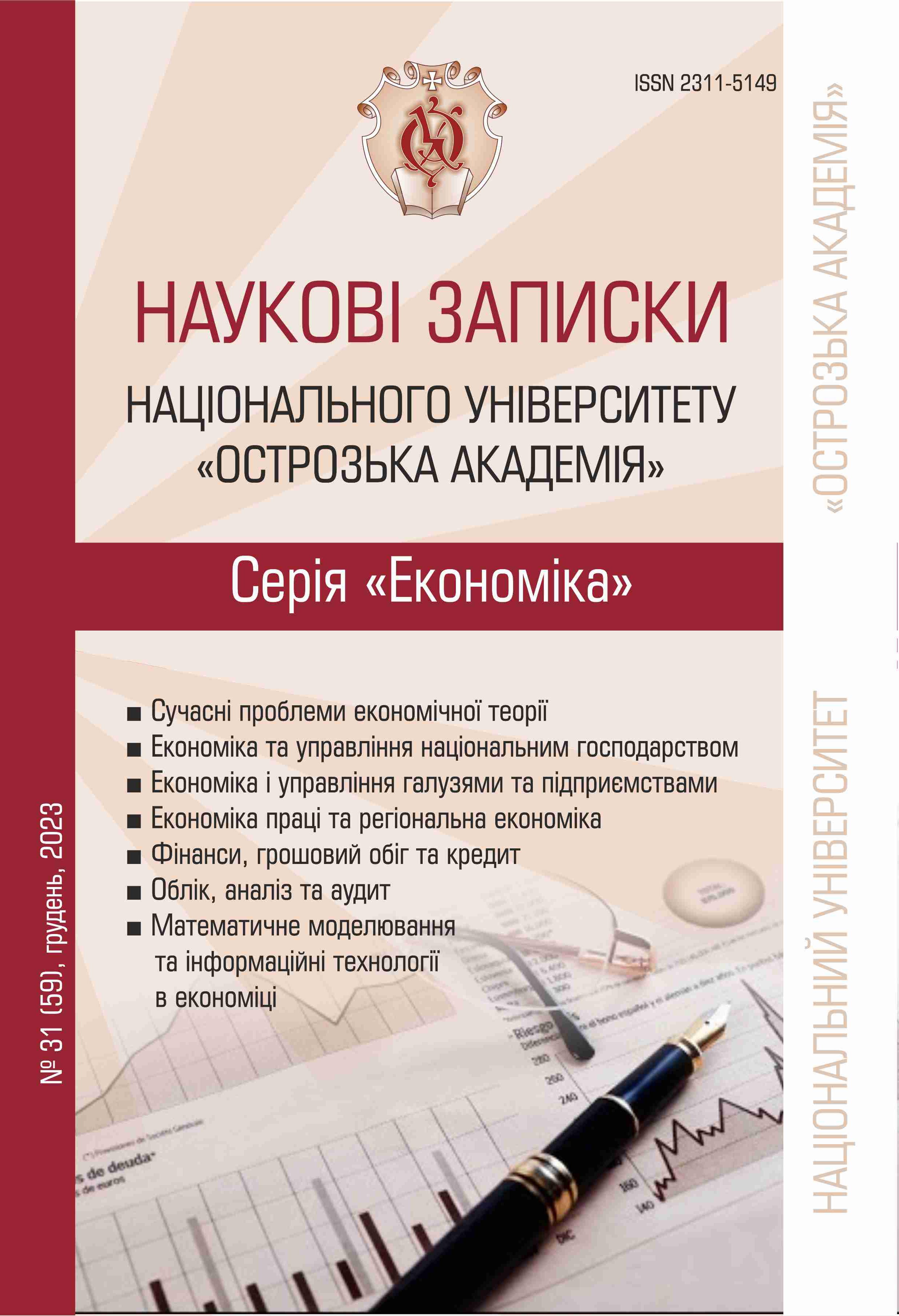MACROECONOMIC MODELING IN UKRAINE BASED ON BEHAVIORAL ECONOMICS
DOI:
https://doi.org/10.25264/2311-5149-2023-31(59)-79-84Keywords:
macroeconomic modeling, economic-mathematical modeling, macroeconomic indicators, behavioral economics, econometric modelsAbstract
The article examines the problems of macroeconomic modeling in Ukraine in the context of the application of functional approaches of behavioral economics. At the same time, behavioral economics is defined as a new direction aimed at researching rational and irrational aspects of economic decision-making in the field of macroeconomic regulation and their impact on economic phenomena. The method of taking into account these aspects in macroeconomic models to ensure a better understanding of economic processes in Ukraine is analyzed. A methodological approach to modeling based on the theory of behavioral economics is considered. An analysis of the key elements that influence the decision-making process in the conditions of a market economy, as well as the peculiarities of their interaction with traditional macroeconomic factors, was carried out. The importance of taking into account individual psychology, social networks and other modern functional factors that can influence the economic decisions of the population and business entities is determined. The possibility of applying behavioral economic concepts to develop more accurate forecasts of economic development, in particular, to improve state economic policy, has been studied. It was determined that taking into account the irrational aspects of making economic management decisions can help to avoid their negative consequences and increase the overall level of stability of the national economy of Ukraine. The current state of macroeconomic modeling in Ukraine is analyzed and its main challenges are highlighted. On the basis of taking into account the specific features of the Ukrainian economy, the need to consider models that would take into account transformational processes adapted to the real conditions and features of economic activity in Ukraine was determined. It has been found that the implementation of behavioral aspects in macroeconomic strategies can contribute to reducing instability, improving forecasts and generally increasing the level of trust of participants in economic relations. The objective necessity of integrating behavioral aspects into modern macroeconomic models has been proven in order to achieve a more accurate and deeper understanding of economic processes in Ukraine, as well as to ensure effective management of the country’s economic development in the context of its post-war reconstruction.


